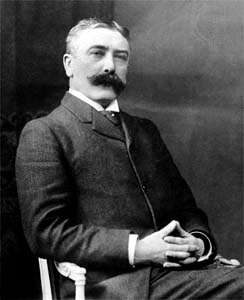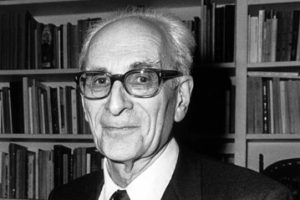“Structuralists believe that the structuring mechanisms of the human mind are the means by which we make sense out of chaos, and literature is a fundamental means by which human beings explain the world to themselves, that is, makes sense of chaos” (Tyson 208).
Description of Theory:
Structuralism wants to know ‘what is the big picture not stated?’ in a text. It basis its premise as everything is ‘textual’ composed of signs through language given meaning in a series of patterns related to how other texts are presented. This theory paved the way for Deconstructive Criticism through the use of binary oppositions where one has privilege over the other i.e. good/bad, sweet/bitter, etc. Structuralism focuses on the privileged binary patterns or repetition within literature genres and individual stories and how if they they are mirrored in society.
Benefit of Theory:
By looking at the larger outcome towards society and how material is repeated the reader can pattern tropes within society or a particular culture.
Disadvantage of Theory:
Language and meaning are cultural. What a language sign means in one, may not be for another so perceived repeated themes can be misinterpreted.
Questions of Structuralist Theorists to Interpret a Text:
These questions of Structuralism are important because they reveal that every piece of literature reflects the reality of society.
- What themes or patterns are constantly repeated in literature?
- How does this relate to culture as a whole?
Notable Theorist/s:
 Ferdinand de Saussure is considered the “Father of Structuralism”. He developed the idea of studying the language of literary texts by focusing on the words and grammar play. Saussure believed language preexists ideas because language is what births ideas and therefore culture which creates society. His greatest creation of Structuralism is the Sign broken down into the idea (the signified) and image (the signifier) which creates the arbitrary (given by society) concept of meaning.
Ferdinand de Saussure is considered the “Father of Structuralism”. He developed the idea of studying the language of literary texts by focusing on the words and grammar play. Saussure believed language preexists ideas because language is what births ideas and therefore culture which creates society. His greatest creation of Structuralism is the Sign broken down into the idea (the signified) and image (the signifier) which creates the arbitrary (given by society) concept of meaning.
 Claude Levi-Strauss developed the structuralist idea of studying the common factors in the differences of human cultures which links humans together, i.e. myths which are the same overall story and similar in language, but come from different cultures.
Claude Levi-Strauss developed the structuralist idea of studying the common factors in the differences of human cultures which links humans together, i.e. myths which are the same overall story and similar in language, but come from different cultures.